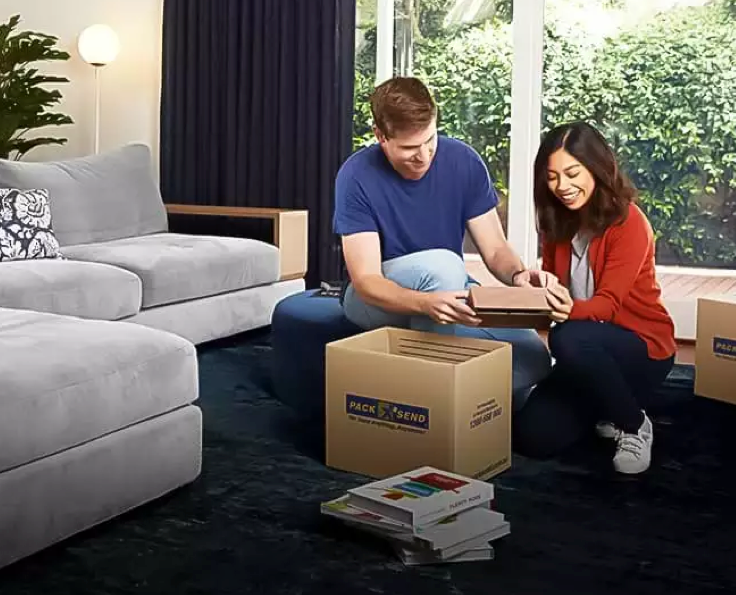No Deposit Home Loans
No Deposit Home Loans
*iSelect is the trading name of iSelect Mortgages Pty Ltd (ABN 86 148 217 181). iSelect Mortgages Pty Ltd is a credit representative (Credit Representative 400540) of Auscred Services Pty Ltd (Australian Credit Licence 442372). iSelect provides a referral to Lendi Pty Ltd, a Credit Representative of Lendi Group Finance Pty Ltd (Australian Credit License 442372). iSelect Mortgages Pty Ltd receives a commission from the Licensee for each new customer account created and for each home loan submitted through this service. Learn more.
Compare home loans the easy way
We partnered with Lendi* to help you compare home loans from over 25 lenders and over 2,500 home loan products.
Can I buy a home without paying a deposit?
Could a low deposit home loan be suitable for me?
Sounds pretty good. What’s the catch?
What is Lender’s Mortgage Insurance?
Are there other ways to get a home loan without a deposit?
How do I get a low deposit home loan?
Saving up for a home deposit can be challenging, especially for young Australians hoping to become homeowners. A no deposit home loan sounds like something that’s too good to be true, and in a way, it is. While no deposit home loans are out there, low deposit or minimum deposit home loans are much more common. In this article, we’ll go through the ins and outs of no and low deposit home loans, including a few things to look out for if you’re considering one.
Can I buy a home without paying a deposit?
In Australia, there are still some home loan lenders who will loan you 100% of the purchase price of a home. These loans are typically only available to people who meet certain conditions, like having a guarantor, and they are quite rare.
While most home loan lending institutions have moved away from no deposit home loans, some lenders will still offer loans with a low deposit. A low deposit loan can potentially allow you to borrow up to 95% of the purchase price of a property. With a bank loaning you nearly all of the cost of your future home, you might only be required to pay around 5% up front.
For example, if you were interested in purchasing a $200,000 home, a lender might loan you 95%, which means initially you’d only need a deposit of $10,000. That’s 2,000 five-dollar coffees from the overpriced cafe down the road. Keep in mind that your home loan lender may also expect you to cover things like stamp duty and other fees. These will probably be factored into the fee you pay upfront.
Keep in mind that your home loan lender may also expect you to cover things like stamp duty and other fees. These will probably be factored into the fee you pay upfront.
Could a low deposit home loan be suitable for me?
Low deposit home loans tend to be popular among young and first-home buyers who might be struggling to save enough money for a home deposit. Timing may also be a factor. For example, if you’ve found a property at a great price and you think the property’s value will only increase over the years, a low deposit loan could help you jump on a good opportunity with the money you have at the time.
Low deposit home loans may also be a good option for property investors who have money tied up in other investment properties but less money in a savings account. Some property investors also might apply for a low deposit home loan because having a negatively geared property, or a property where the rental return is less than the payments they’re making on it, can have tax benefits.
Sounds pretty good. What’s the catch?
If you’re having a tough time saving up for a deposit, the idea of being able to reach your goal of homeownership without one might sound great. But there are a few disadvantages to these loans that may be worth considering, such as:
- Interest rates: usually, the interest rate paid on top of your monthly mortgage payment will be higher the more you borrow. Before you agree to a loan, it’s worth making sure the total monthly payments will be within your budget
- Requirements: some lenders will have strict application requirements before agreeing to a no deposit or low deposit home loan. We’ll cover these shortly, so read on to see if you might be able to qualify. These checks can make the process take longer than with other types of homes
- Depreciation: if you’ve opted into a low deposit loan, you might spend several more years paying it back. And, during that time, there’s a chance the value of your home could actually decrease
- Lender’s Mortgage Insurance: Lender’s Mortgage Insurance is an additional upfront payment that you might want to factor into your decision
What’s Lender’s Mortgage Insurance?
Lender’s Mortgage Insurance (LMI) is a premium added to your home loan to protect the lender in case you default on your loan.1https://moneysmart.gov.au/glossary/lenders-mortgage-insurance-lmi This is a one-time payment and how much you pay will generally depend on the size of your deposit and how much the bank is lending you. With low deposit loans, the cost of LMI can run into the thousands. You can also choose to capitalise the LMI by including the payment into your monthly mortgage repayments.
Generally, lenders will only charge you Lender’s Mortgage Insurance if your deposit is less than 20 percent of the total purchase price of your property. Some lenders may not require LMI if you have a guarantor to sign onto your loan. A guarantor is someone you know personally who agrees to pay your loan if you are unable to for some reason.2https://moneysmart.gov.au/loans/going-guarantor-on-a-loan
Helpful Tip:
While some lenders may not require a deposit for a home loan, these lenders are few and far between. Additionally, if you do take out a loan without putting down a deposit, this could significantly increase the interest you need to repay over the loan term. Lenders will want to see a history of saving, so building up even a small deposit to put towards your loan principal is a more ideal option . There are also some government incentives available to eligible borrowers with a 5% deposit. At the end of the day, you want the peace of mind that you can manage your repayments, and enjoy living in your new home as long as you wish.
Are there other ways to get a home loan without a deposit?
If you don’t have the cash to put down a deposit and don’t want to apply for a no deposit home loan, you may still be able to pursue homeownership. There are a few alternate routes to homeownership, such as:
- One-off financial gift: if you’re lucky enough to receive a large chunk of change from a parent, grandparent, or other family member, it may be tempting to book a roundtrip ticket to the South of France. But saving this money could be the different between having enough for a 20 percent deposit on a house down the track.
- First Home Owners Grants: state and territory governments have various initiatives to help Australians buy their first home. Learn more about the different programs offered by each state here.
- Existing equity: equity is the difference between how much you’ve paid off your mortgage (what’s still owing) against the value of your property.3https://moneysmart.gov.au/glossary/equity If your property is worth more than what you owe on it, you may be able to put that positive equity towards buying your next property.
- Personal loan: this is not a common or easy way to buy a home, but is possible in some scenarios. If you use a personal loan to finance the deposit on a home, a home lender may be willing to loan you the rest if you have enough income to cover both loans. Bear in mind that personal loans attract much higher interest rates than home loans and some lenders may have requirements regarding ‘genuine savings’, which may mean they do not accept personal loans for deposits.
How do I get a low deposit home loan?
Lending out 95% of the purchase price of a home can be riskier for banks, so they prioritise trustworthy borrowers. If you’re serious about applying for a low deposit home loan, these tips might give you a better chance:
Manage your debt
Lenders always check your credit rating and any debts you have to assess your risk as a borrower. In the months leading up to your home loan application, focus on minimising your debt and making consistent, on-time repayments.
Save what you can
Even a small amount of savings can help show a potential lender that you’ll have the money to make your monthly repayments. If you can, try to put a bit of your income into a savings account each month so you have proof of genuine savings.
Check your borrowing power
Your borrowing power is the amount of money a bank will lend you. Many banks have online borrowing power calculators, which are often based heavily on how much you earn per year.
Lower your credit card limit
If you have a lot of credit cards, or one credit card with a high limit, this could potentially impact your application approval for a low deposit home loan. Speak to your bank about the benefits of lowering your credit card limit or even cancelling your credit card after you’ve paid off any outstanding debt.
Check your credit score
When assessing your home loan application, lenders will perform a credit check to ensure you have a healthy credit score.4https://moneysmart.gov.au/managing-debt/credit-scores-and-credit-reports Your credit rating gives information about your loan repayment history, past and present credit products and enquiries, defaults, and more.
Lower your credit card limit
If you have a lot of credit cards, or one credit card with a high limit, this could potentially impact your application approval for a low deposit home loan. Speak to your bank about the benefits of lowering your credit card limit or even cancelling your credit card after you’ve paid off any outstanding debt.
Demonstrate stability in your life
This one is up for interpretation, but some lenders might see changing jobs or moving frequently as a bad sign. You also may want to avoid making a large purchase, such as a car, right before applying.
While these tips may help your odds, whether or not you are approved for a low deposit home loan will ultimately fall on the potential lender.
If you’re seriously thinking about purchasing a new home, it may be worth looking at different kinds of home loans, including no deposit home loans. But remember that not all home loans are the same. If you need help comparing home loan lenders, we’ve partnered with Lendi to make that process easier for you*. Click here to start comparing home loans with Lendi today or give Lendi a call on 1300 186 260 (08:30-18:30).
Nicole Jacobs
Co-Founder and Managing Director, WHITEFOX Advocacy
Nicole Jacobs is a professional and highly regarded member of the property industry. A licensed REIV estate agent, co-founder and managing director of WHITEFOX Advocacy, Nicole and her team acquire properties for their clients that are right for them and on their terms.

.svg)





